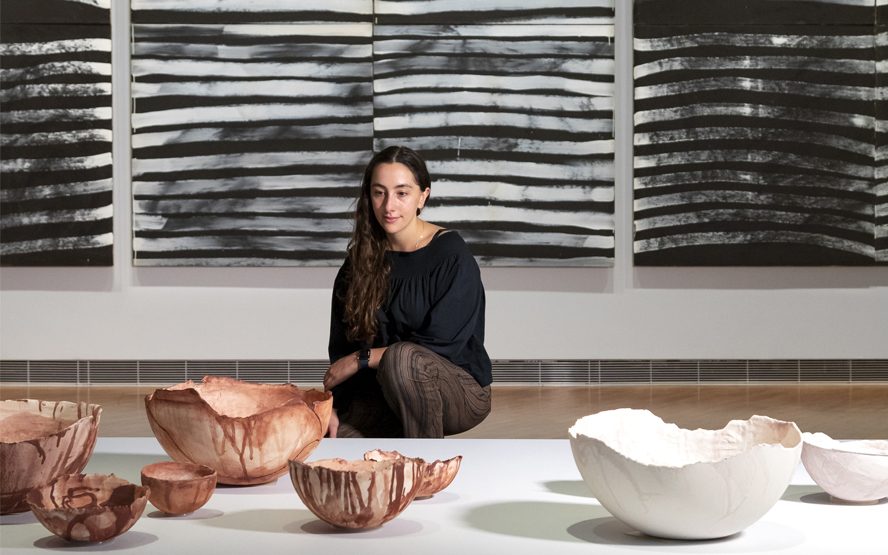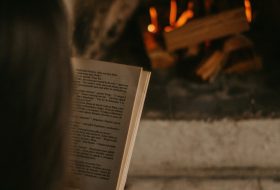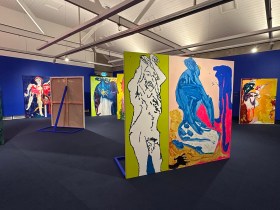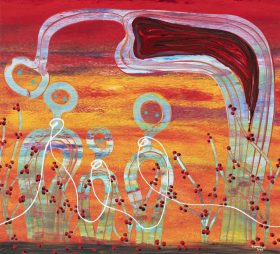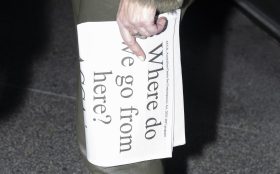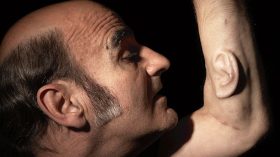Curated by Arrernte and Kalkadoon woman Hetti Perkins, the 4th National Indigenous Art Triennial: Ceremony showcases the breadth of First Nations art practices until 31 July at the National Gallery of Australia, before touring across Country.
Co-curator Kelli Cole, the National Gallery’s Curator of Aboriginal and Torres Strait Islander Art, shared with ArtsHub the ‘many proud moments of tears and joy throughout Ceremony’s opening.
‘The wife and granddaughter of the late ceramic artist Kunmanara Carroll came to represent him in the community with tears of pride and sorrow. His spirit was represented in his works… When Mantua Nangala sang her pink dot paintings into the space she was bursting with joy.’
Cole continued: ‘Since the launch of the National Indigenous Art Triennial in 2007, the National Gallery has been able to host some of the most important exhibitions for First Nations art and artists. The Triennial allows the Gallery to have ongoing engagement with various artists, communities, and cultures to highlight the breadth of their practices.
‘Being on Country in a national institution with those artists, who are not only representing themselves but also their own people is really, really important,’ she said.
Highlights of the 4th National Indigenous Art Triennial
Situated in the National Gallery Sculpture Garden, Mulanggari yur-wang (alive and strong) by Ngunnawal-Ngambri Elder Dr Matilda House and her son Paul Girrawah House launch visitors into Ceremony, marking their unbroken connection to Country through tree-scarring.
Inside the Gallery, Yarrenyty Arltere and Tangentyere Artists collectives stage Blak Parliament House, sending a strong callout to this year’s NAIDOC theme, Get Up! Stand Up! Show Up!
Marlene Rubuntja, a member of the collective, explained: ‘This Parliament House is for everyone. White, Aboriginal and any other colour. It belongs to the community. It does not just belong to those white men me and Milton always see talking on TV.’
Reflecting on the fourth Triennial she has been involved with, Cole said: ‘It’s been really wonderful to see the visitor engagement with this Triennial. Not only is Hetti Perkins a very sophisticated curator, the exhibition has very strong elements on climate change and politics, and we’ve been able to communicate that through tours and conversation programs.’
Visitors can also immerse themselves in the exhibition with a free audio tour, hearing from the artists themselves about their practices and deep connections to ceremony and Country.
Of the 18 new commissions and 38 First Nations artists – none of whom have been shown in previous iterations of the Triennial – other Ceremony highlights include Wiradjuri artist S.J Norman’s Bone Library, the neon installation Gemerre by Boorljoongali, and Nicole Foreshew’s ceramic vessels.
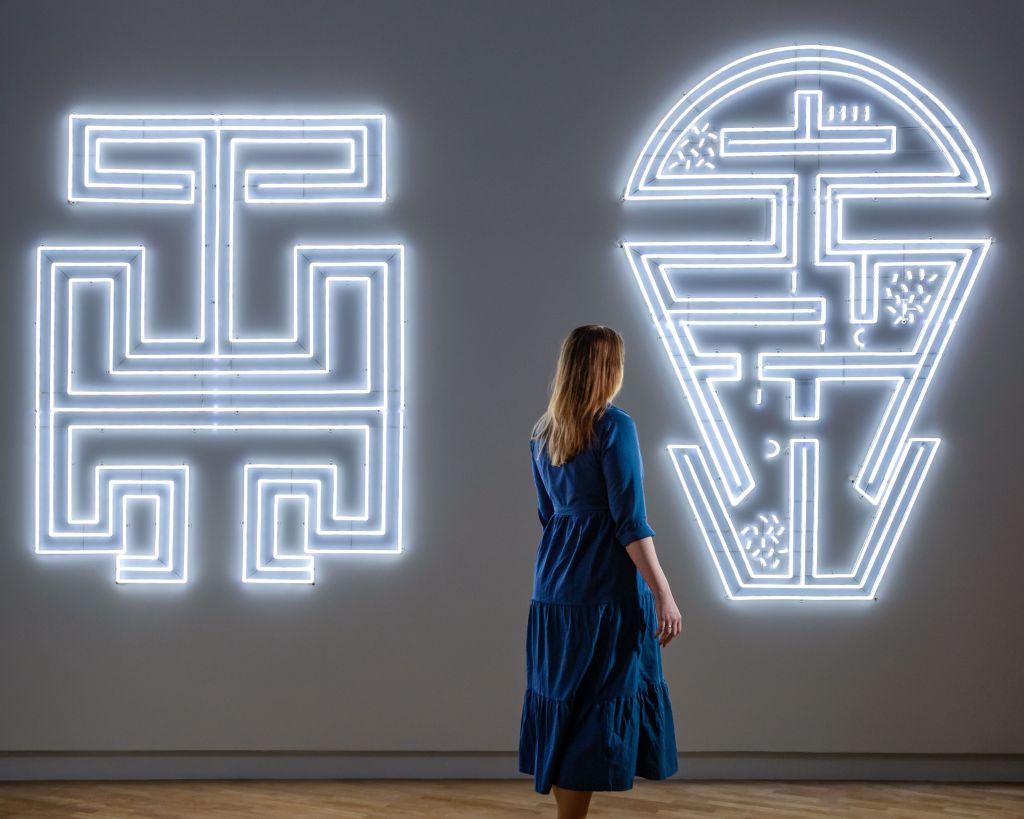
The Triennial also encourages participants to break boundaries and experiment, with Mpartnwe filmmaker Dylan River turning to photography and Hayley Millar Baker debuting her first video work, Nyctinasty.
Cole said each iteration of the Triennial is a new opportunity to engage with First Nations curators and artists.
‘The Triennial is not about the National Gallery’s collection, but rather draws on the curator’s knowledge and experiences. With Hetti Perkins living on the East Coast and growing up in Sydney, she’s been aware of a lot of these East Coast artists for quite some time whereas previous curator Carly Lane’s show had a strong Western Australian focus.’
This open approach ensures that each Triennial will bring in fresh talent and diverse narratives.
After concluding its premiere season at the National Gallery, Ceremony will embark on a national tour, making its first stop at the University of Queensland Art Museum from 26 August before travelling to Victoria’s Shepparton Art Museum in December.
The 4th National Indigenous Art Triennial: Ceremony is on view at the National Gallery of Australia until 31 July.
